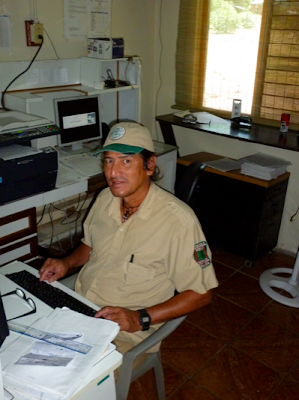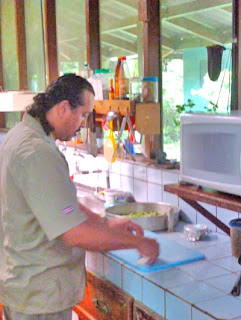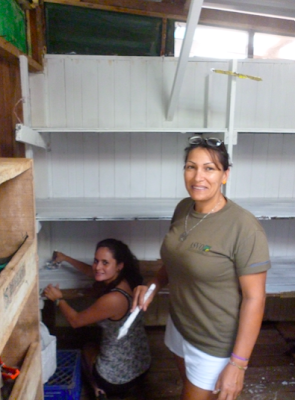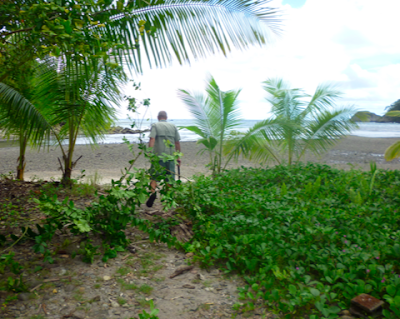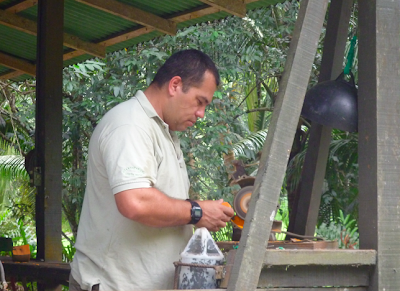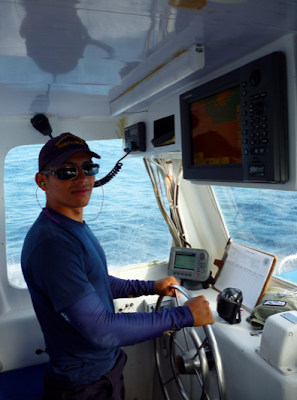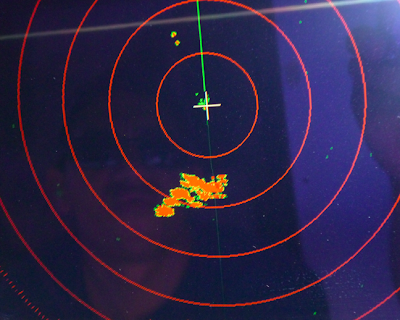Vinicio is the station’s office man, processing administrative paperwork and anything else that comes his way: inventory, daily patrol reports, and the various permissions required by the dive boats.
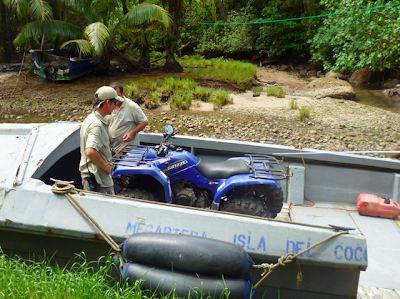 This four wheeler is being shipped back to the mainland for repairs because the shaft that drives the rear axle has snapped. It was lifted on board Megaptera by four funcionarios. It will be transferred to one of the diving boats by crane and carried back to Costa Rica.
This four wheeler is being shipped back to the mainland for repairs because the shaft that drives the rear axle has snapped. It was lifted on board Megaptera by four funcionarios. It will be transferred to one of the diving boats by crane and carried back to Costa Rica.
 Even though he worked through lunch and is eager for some chow, Bryan takes the time to rinse off the snorkel gear in fresh water after spending the morning cleaning the hull of the Mobula (One of the island’s transport launches).
Even though he worked through lunch and is eager for some chow, Bryan takes the time to rinse off the snorkel gear in fresh water after spending the morning cleaning the hull of the Mobula (One of the island’s transport launches).
 Golfin, the park’s head, hard at work in the shade of the beach-side pavilion.
Golfin, the park’s head, hard at work in the shade of the beach-side pavilion.
And then, of course, there’s the daily patrol:
 The Albatross – Already caught within the park 17 times this year
The Albatross – Already caught within the park 17 times this year
 The Chaday I – already caught within the park 11 times this year
The Chaday I – already caught within the park 11 times this year
The crews of the two boats lounged on the decks in the sun. Some took videos or pictures with cell phones and cameras. Others simply stared.
 As we turned towards the island, several of the fishermen raised their arms in a casual wave, a gesture of smug satisfaction that turned Maikel’s normally serene expression sour.
As we turned towards the island, several of the fishermen raised their arms in a casual wave, a gesture of smug satisfaction that turned Maikel’s normally serene expression sour.
We spent the next two hours trolling the water’s where the fisherman had originally been looking for the lines Maikel suspected were there (the radar was picking something up in that location) but we came up empty-handed. When night fell and there were no more boats on our radar, Maikel pointed the bow back to Wafer.
Tomorrow, there will be no patrol because it’s diesel delivery day. Unfortunately, no patrol doesn’t mean no fishermen; it just means that today there won’t be anyone to drive them away.
By William Henriques

